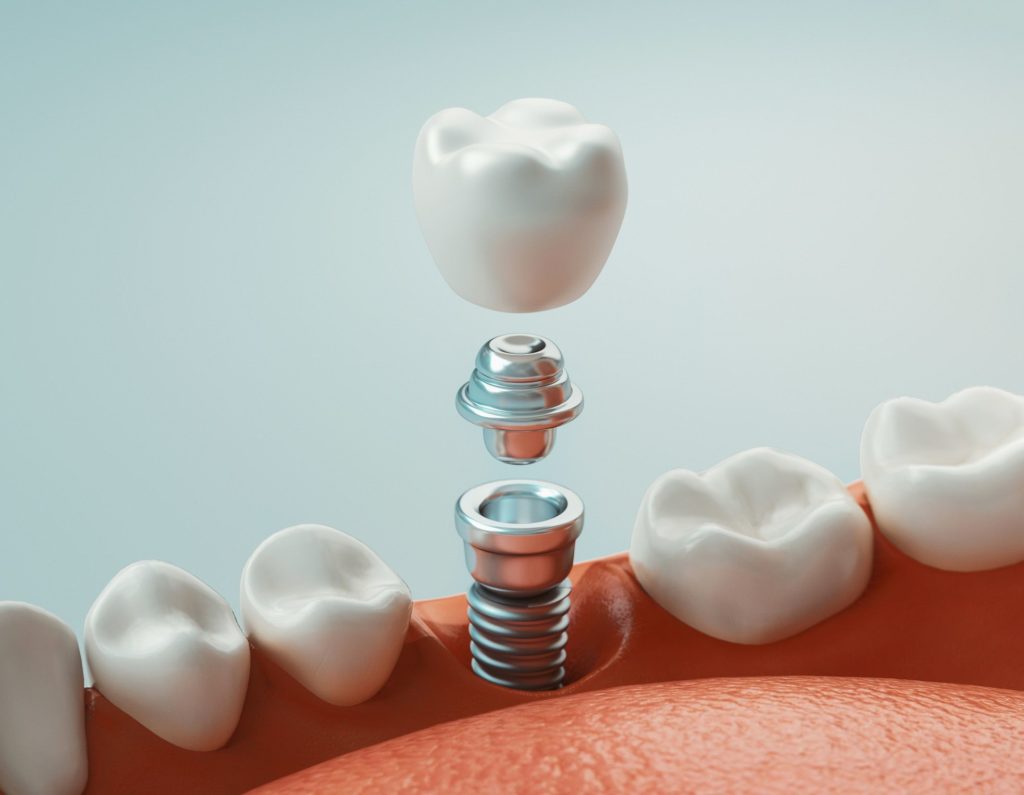If you have recently lost a tooth to decay or trauma, you should consider replacement options. It is vital that you get a tooth substitute. Your teeth all work together as one whole unit. So, when one tooth is missing, your teeth don’t work as efficiently. Eventually, your teeth will shift and cause issues with your bite. Over time, you can actually lose more teeth. This is because your teeth need the support of your other teeth to remain stable.
There are a variety of replacement options that are temporary and permanent. From partial dentures to dental bridges, you and your dentist can find an option that is best for you. You should consider dental implants if you want a permanent solution that looks and feels like your natural teeth.

What Are Dental Implants?
Dental implants are surgically-placed prosthetic tooth roots. First, a titanium root is implanted into your jawbone in order to create a strong foundation. Then, a team of dental professionals will create a surgical plan to restore your smile.
The first surgical step is to surgically place the tooth root in the socket of the missing tooth. Before moving to the next step, the surgical site must fully heal. It is vital that the jawbone heals and accepts the titanium implant so that the abutment and crown have a stable base.
Next, the dentist will place a connector post, or the abutment, onto the tooth root. Before finishing the procedure, your dentist will take a model of your teeth to make sure that the crown will match the rest of your teeth.
Caring For Implants
One of the many benefits of dental implants is that they require the same type of care as your natural teeth. It would be best to brush your teeth at least twice a day or after meals. Flossing is also an important step to complete daily. Your oral health routine is essential to keep your teeth and new implant healthy.
Are Dental Implants For Everyone?
A dental implant procedure is long and intensive. However, if you can undergo any routine tooth extraction or dental procedure, you will be fine to receive a dental implant. A vital requirement for a dental implant is that a patient must have healthy gums and bones. Importantly, you have to maintain excellent oral health to keep your mouth healthy and clean.
Certain medical conditions may limit your ability to get dental implants. Although, your dentist might consider your health on a case-by-case basis. If you don’t keep certain chronic disorders in check, they may pose a risk for you. You will need to stabilize certain conditions, such as diabetes and heart disease, before you can receive implants.
Unfortunately, medical treatments like chemotherapy or radiation may be limiting factors. Radiation and chemotherapy can compromise the integrity of your bones. Strong bones are necessary to hold the structure of an implant. So, if you have any health conditions or are undergoing chemotherapy, talk to your dentist about treatment options.
